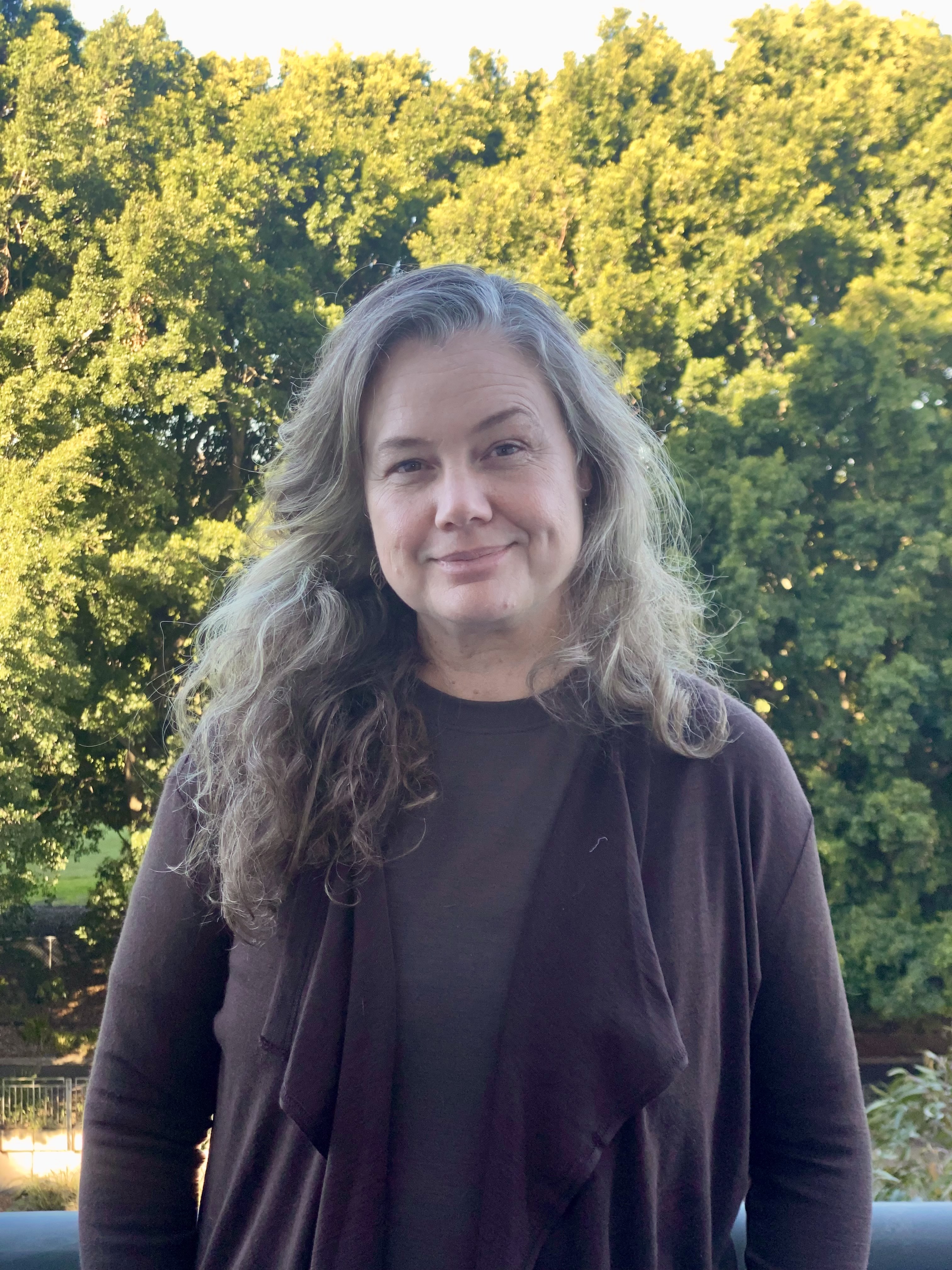Climate Cafés are carefully facilitated gatherings designed to foster supportive connections and meaningful conversations about climate change, biodiversity loss, environmental degradation, climate justice and the broader impacts of the climate crisis. These spaces invite participants to listen deeply – to each other and to themselves. They provide a contained and facilitated environment, where individuals can lower their defences, allowing them to face difficult truths with openness. In these shared experiences of loss and distress, participants find both solace and strength, confronting the realities of ecological collapse, while fostering collective resilience.
Hearing others’ stories helps people reframe their own – bringing renewed energy, clarity and a vision for engagement. It can also bring deep reflection on one’s life. The ripple effects of these insights extend from frontline activism to everyday acts of care – how we tend to our local environment, make financial choices, vote and live our lives in ways that support living systems.
"Not only have the climate cafés provided a space to express feelings of climate grief and distress, but I have learnt so much from listening to others speak about their experiences," (Participant.)
In 2022, Psychology for a Safe Climate (PSC), an Australian health promotion charity supporting people psychologically through the climate crisis, launched a climate café programme. I was one of the initial facilitators, InterVision mentors and the programme manager, following my experience of facilitating climate cafés in Extinction Rebellion global support. The programme began simply, as a monthly online gathering for people across Australia.
“ People working in climate and energy normally only share edited versions of their fears and feelings about the climate crisis, which can be lonely and prevent processing those feelings. The climate café was a revelatory and healing experience," (Participant.)
Early on, it became clear that many attendees felt deeply isolated in their climate distress. Some had endured direct climate-related disasters – the devastating 2019-20 bushfires, followed by floods, extreme rainfall, Covid-19 lockdowns and the escalating risk of further disasters. Others struggled with the global climate emergency and the failure of political leadership
Climate change was no longer a distant future threat – it was already at Australians’ front doors. A 2023 Climate Council report found that 80% of Australians had experienced at least one climate-related disaster since 2019: 63% had faced heatwaves, 47% flooding, 42% bushfires, 36% drought, 29% destructive storms and 8% landslides. The climate cafés became spaces where these statistics turned into real, lived stories.
Holding space for climate grief and trauma
As a climate-aware psychotherapist and facilitator with many years of experience, I was not immune to the deep emotional weight carried into these cafés. One story that stayed with me was from a woman who had been in bushland during the fires, listening to acres of animals screaming. After three days, the bush fell silent – a chilling relief that the suffering had ended, yet a haunting reminder of loss. The suffering had ended – but at what cost? It was estimated that three billion animals, including mammals, reptiles, birds and frogs, were killed or displaced during the megafires.
As someone who has always loved animals – especially Australia’s unique wildlife – this story cut deep. I live with an Alpine dingo named Sky. Listening to these accounts reinforced the importance of community spaces where we can process such profound grief. We need ways to collectively hold our heartbreak, to engage in grief rituals, and to transform sorrow into connection and care.
Developing a trauma-informed climate café model
The opportunity to connect around feelings rather than around constant doing and action is a rare and wonderful thing in the climate movement. To slow our bodies, hearts and breath, to be together and to process the grief of the climate crisis, is a vital yet frequently neglected part of the change in climate justice movements, and PSC brings enormous skill and deep care to holding space for this through their climate cafés," (Participant).
Recognising the intensity of the trauma, grief and climate emotions arising in climate cafés, we successfully sought funding to develop a trauma-informed, culturally aware facilitator training. This training incorporated anti-oppression and decolonising practices and honoured Aboriginal and Torres Strait Islander wisdom, particularly the tradition of yarning circles. These circles, practised for millennia, foster learning, respect and trust through deep listening and community sharing. In 2023, we trained 10 climate-aware practitioners from PSC’s practitioner membership and directory. We also created an ongoing peer-learning space called InterVision, where facilitators could reflect, support each other, and explore the challenges and stories emerging in cafés. This space has become one of the richest sources of learning for facilitators; fostering continuous growth and adaptation.
As the training expanded to the public, climate cafés reached an even wider range of practitioners: educators, scientists, researchers, social workers, mental health professionals, community leaders, doctors and activists. Participants included BIPOC (Black, Indigenous and People of Color), LGBTQIA+ individuals, young people, parents, older women, neurodivergent and disabled individuals, those with chronic illness, regional and rural Australians, farmers, activists and scientists. The most consistent feedback was a profound sense of relief: people no longer felt alone in their climate grief.
Climate cafés as a community-led mental health response
Community mental health calls for the design of support systems that are collective rather than individualistic, and that are flexible in response to feedback and changing conditions. PSC’s climate café model, with its emotional and relational infrastructure, was the first of its kind in Australia, reaching those in need of them most, such as climate activists, young people and researchers. Its pioneering approach both facilitates emotional support and nurtures resilience. Through participant feedback and facilitator insights, the model continues to evolve, ensuring it remains responsive to the communities it serves.
"Here, we can be who we are in this world of fluid emergent change, listening and maybe reflecting on where we presently are. Held warmly in this group, observations bubble to the surface, and we breathe together, stronger in our common grounding," (Participant).
Climate cafés create spaces where those who feel profound loss can share their experiences and find solidarity, rather than suffering in silence. In Darwin/Garramilla (on Larrakia Country), a climate café has been running for a year, consistently attended by activists and environmental advocates frustrated by political inaction. One young volunteer with Australian Parents for Climate Action attended the local Senate inquiry, probing $1.5 billion in federal funding promised to a Northern Territory gas processing precinct. Speaking out about her community’s climate anxiety to lawmakers, she said: “I know I’m not alone in my community. We now have climate cafés run by volunteers, offering a space to share our feelings about the climate crisis.” Her testimony highlighted for the attending Senators that even in Australia’s remote regions, people were motivated to gather and create their community spaces to process environmental grief. Her testimony was inscribed into the parliamentary record.
Providing climate cafés to the community in Garramilla/Darwin over the last 18 months has been a very rewarding process. For those willing to acknowledge their distress around the climate and polycrisis, the cafés provide a much-needed outlet to share their experience and connect with others. My sense is that a growing section of the population in the Northern Territory recognise the need for, and benefits of, such opportunities.," (Charlie Ward, Facilitator).
Climate cafés are also addressing ‘Reef Grief’; helping people channel their grief into connection and resilience. Research from CSIRO (the Commonwealth Scientific and Industrial Research Organisation), the University of Exeter and James Cook University found that half of those who live, visit or work on the Great Barrier Reef experience profound grief over its decline. With the reef experiencing its fifth mass bleaching event in eight years, feelings of loss and grief are intensifying. Climate cafés are providing a sanctuary and container for those at the frontline of the reef’s destruction; including parents mourning that their children may never see a thriving reef, and divers reckoning with the reality of once-pristine ecosystems in collapse. Yolanda Waters, a marine social scientist, described her recent experience w
"I feel so fortunate to live on one of the 900 islands in the Great Barrier Reef World Heritage Area. Climate cafés offer a chance to stop, take stock and process our emotional responses to these threatened, precious places together," (Chloe Watfern, Facilitator.)
In Lutruwita/Tasmania, where climate impacts are often underestimated, climate cafés are opening up a space to express ecological grief over dying forests, disappearing kelp forests and unprecedented ocean heatwaves. Facilitator and ecologist Therese Smith has worked with her school principal to introduce climate cafés into their school, supporting young people who are acutely aware of their changing world. Parents also regularly seek guidance for helping their children cope with climate distress.
Climate cafés are a tremendous space for sharing our feelings about the climate crisis and the world we find ourselves in. As someone who’s been involved in campaigning for the last 25 years and who has done a lot of very direct facilitation, it’s quite unlike anything else I’ve experienced in its openness and freedom, which enables a very genuine space of sharing to emerge. I’m still learning so much about it, but all of my experiences have shown a lot of promise for a very different way of showing up for this enormous, existential challenge, (Tim Hollo, Facilitator.)
Through the climate café programme, PSC is helping groups and communities navigate the emotional weight of the climate crisis/ polycrises. Too often, emotions are seen as private and secondary to action – but our feelings reveal what we care about and for whom. Climate cafés support people in voicing their care for each other and the living world, sense making and fertilising the ground for greater engagement and collaborations. Only through real community connection can we create new narratives about how to live, work, raise children and advocate with compassion, purpose and meaning, given the depth of uncertainty in these turbulent times.
The growth of climate cafés and their impact
Climate cafés continue to grow in response to community needs, with new facilitators stepping up from a variety of backgrounds in diverse locations and contexts. These spaces provide much-needed emotional support, while also nurturing deeper engagement with climate action. As facilitators hold space for grief, anger and uncertainty, they find this also creates openings for forms of hope, connection, and resilience.
In some communities, the cafés have led to greater political engagement, as participants feel emboldened to advocate for climate policies and share their stories in public forums. In others, they have become a bridge to intergenerational dialogue, where younger and older people come together to share their experiences, wisdom and fears about the changing world.
The model is ever evolving, shaped by the lived experiences of participants and the contexts of the cafés. The strength of climate cafés lies in their adaptability – whether in urban centres, regional communities, frontline activist spaces or schools, they offer a vital meeting place for collective emotional processing. As more people awaken to the reality of the climate crisis, these spaces will become ever-more essential, helping to sustain both individual wellbeing and the broader movement for climate justice.
*****
Christie Wilson is a climate-aware therapist and the Climate and Mental Health Manager at Psychology for a Safe Climate, where she leads the climate-aware practitioner professional development and Climate Café programmes. She has extensive experience in facilitating trauma-informed group processes around climate emotions, and in supporting climate leaders’ mental health.






